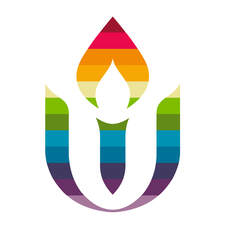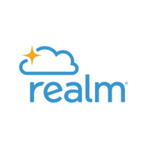IMPORTANT! READ ABOUT HOW TO GET THE ZOOM LINKS FOR THE LECTURES
If you are not already on the list to receive Winter Lecture Series (WLS) reminders, CLICK HERE to sign up for that email list to receive reminders. We will be sending emails 24 - 48 hours before each lecture with the Zoom link. The Zoom link will be the same for each lecture.
Time: 7:00 PM to 8:30 PM Format: 45-minute lecture followed by an audience-driven Q&A.
LAST YEAR: Global Perspectives: The Winter Lecture Series 2024
Can Democracy Be Saved? The Global Trend Toward Strongman Rule
History of the Winter Lecture Series
The Winter Lecture Series began at Vine Congregation Church in 1985. The first year the topic of the Series was Central America. That topic set the early trend of the Series focusing each year on a single country or a region of the world. In 2001 the Unitarian Church inherited the Winter Lecture Series. With that change, besides focusing on single countries or regions, sometimes our annual topics were cross-cutting issues such as human rights, or poverty, or environmental issues.
Our goal is to provide unbiased information to our attendees—information provided by experts from local or distant Universities and organizations such as the US State Department. Although bringing experts from other states and countries is expensive, our lectures are always free and open to the public, and no registration is required.
Support for our lectures has been provided each year by grants from Humanities Nebraska (formally the Nebraska Humanities Council), UNL OLLI (Osher Lifelong Learning Institute), and the Social Justice Committee of the Unitarian Church of Lincoln.
HISTORY OF WINTER LECTURE SERIES - including a list of topics and speakers.
You are invited to attend any and all lectures of the Winter Lecture Series. Each year we inform the people on our email list of the year’s topic and schedule. If you would like to be informed of upcoming lecture series, or you need additional information, please email a note to [email protected] with “Winter” entered in the subject line. Your email address will not be shared with any other entities.
Want to watch a video from a past series? Winter Lecture Series videos are uploaded to our YouTube channel.
If you are not already on the list to receive Winter Lecture Series (WLS) reminders, CLICK HERE to sign up for that email list to receive reminders. We will be sending emails 24 - 48 hours before each lecture with the Zoom link. The Zoom link will be the same for each lecture.
Time: 7:00 PM to 8:30 PM Format: 45-minute lecture followed by an audience-driven Q&A.
LAST YEAR: Global Perspectives: The Winter Lecture Series 2024
Can Democracy Be Saved? The Global Trend Toward Strongman Rule
History of the Winter Lecture Series
The Winter Lecture Series began at Vine Congregation Church in 1985. The first year the topic of the Series was Central America. That topic set the early trend of the Series focusing each year on a single country or a region of the world. In 2001 the Unitarian Church inherited the Winter Lecture Series. With that change, besides focusing on single countries or regions, sometimes our annual topics were cross-cutting issues such as human rights, or poverty, or environmental issues.
Our goal is to provide unbiased information to our attendees—information provided by experts from local or distant Universities and organizations such as the US State Department. Although bringing experts from other states and countries is expensive, our lectures are always free and open to the public, and no registration is required.
Support for our lectures has been provided each year by grants from Humanities Nebraska (formally the Nebraska Humanities Council), UNL OLLI (Osher Lifelong Learning Institute), and the Social Justice Committee of the Unitarian Church of Lincoln.
HISTORY OF WINTER LECTURE SERIES - including a list of topics and speakers.
You are invited to attend any and all lectures of the Winter Lecture Series. Each year we inform the people on our email list of the year’s topic and schedule. If you would like to be informed of upcoming lecture series, or you need additional information, please email a note to [email protected] with “Winter” entered in the subject line. Your email address will not be shared with any other entities.
Want to watch a video from a past series? Winter Lecture Series videos are uploaded to our YouTube channel.


